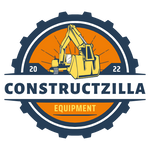The Future of Material Handling: Electric Forklifts
Introduction:
In the ever-evolving world of material handling and logistics, electric forklifts have emerged as a game-changer. As businesses strive for more sustainable and efficient operations, the shift towards electric-powered forklifts is becoming increasingly prominent. This article delves into the world of electric forklifts, exploring their benefits, functionalities, and the impact they have on the logistics industry.
Why Electric Forklifts?
-
Environmental Impact: Electric forklifts offer a greener alternative to their internal combustion counterparts. With zero emissions, they significantly reduce the carbon footprint of warehouse operations, contributing to a healthier work environment and aiding companies in meeting their sustainability goals.
-
Cost-Effectiveness: While the initial investment in an electric forklift may be higher, the long-term savings are substantial. Electric forklifts have fewer moving parts, leading to lower maintenance costs. Additionally, electricity as a power source is generally cheaper than fossil fuels, further reducing operational expenses.
-
Performance Efficiency: Electric forklifts have come a long way in terms of performance. They offer smooth acceleration and deceleration, precise control, and generally have a smaller turning radius. This makes them ideal for indoor use and tight spaces, which is common in warehouse settings.
-
Noise Reduction: One of the most noticeable benefits of electric forklifts is the significant reduction in noise levels. This feature is particularly beneficial in indoor environments, contributing to a better working atmosphere and reducing noise pollution.
Considerations for Choosing an Electric Forklift
-
Battery Life and Charging: Understanding the battery life and charging requirements is crucial. Modern electric forklifts come with advanced battery technologies, but it’s important to consider the operational hours and charging infrastructure required for your specific needs.
-
Lifting Capacity and Height: Like any forklift, electric models come in various lifting capacities and heights. Assessing the specific needs of your operations, including the weight of loads and height requirements, is essential for choosing the right model.
-
Maneuverability: Given that electric forklifts are often used in indoor settings, their ability to maneuver in tight spaces is a critical factor. Opting for models with a smaller footprint and excellent ergonomic controls can enhance operational efficiency.
-
Safety Features: Safety is paramount in warehouse operations. Electric forklifts often come equipped with advanced safety features such as automatic braking systems, anti-rollback technology, and warning systems. These features not only protect the operator but also enhance overall workplace safety.
The Future of Electric Forklifts
The future of electric forklifts is bright, with continuous advancements in battery technology, automation, and integration with smart warehouse systems. As the push for sustainability and efficiency grows, electric forklifts will undoubtedly play a pivotal role in reshaping the material handling landscape.
Conclusion:
Electric forklifts represent a significant step forward in the material handling industry. Their benefits in terms of environmental impact, cost-effectiveness, and operational efficiency make them an attractive option for businesses looking to modernize their operations. As technology continues to evolve, electric forklifts will continue to advance, offering even more possibilities for efficient and sustainable warehouse management.

